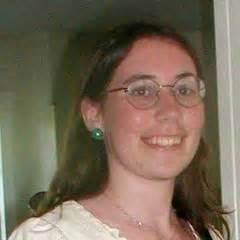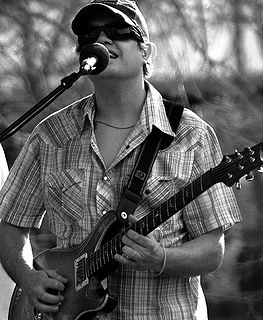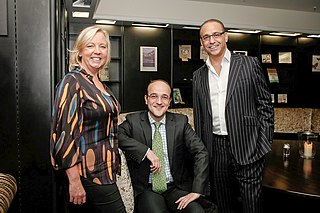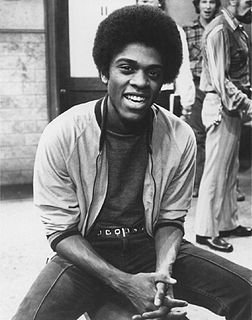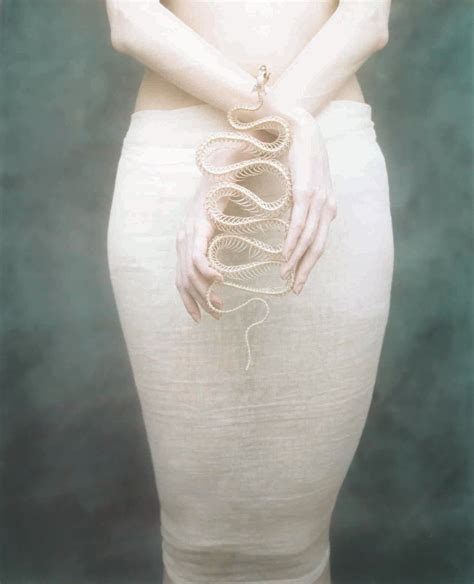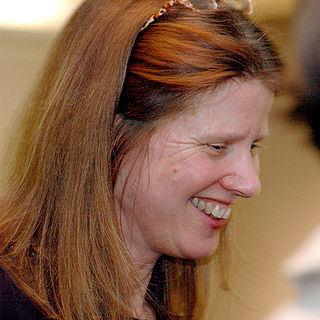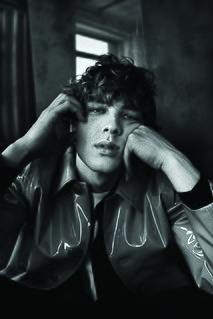A Quote by Valerie Estelle Frankel
During the process of writing the book, I had this experience that was telling for me. I got it and the basic idea and got the plots and everything, but I wasn't sure who the audience was. I exist in this other world - in the book publishing and magazine world of people who would make fun of this project. We were driving home after two weeks in Maine, and we stopped in a gas station in Massachusetts and saw that Snooki had just been arrested. It was a surreal moment. My last few weeks were spent trying to get in this person's head, and there she was in on the cover of the New York Post .
Quote Topics
After
Arrested
Audience
Basic
Been
Book
Book Publishing
Cover
Driving
Driving Home
Everything
Exist
Experience
Few
Fun
Gas
Gas Station
Get
Got
Had
Head
Home
Idea
Just
Just Be
Last
Magazine
Maine
Make
Massachusetts
Me
Moment
New
New York
Other
People
Person
Plots
Post
Process
Project
Publishing
Saw
She
Snooki
Spent
Station
Stopped
Sure
Surreal
Telling
Trying
Two
Two Weeks
Weeks
Were
World
Would
Writing
York
Related Quotes
The idea of the book ["The Japanese Lover"] came in a conversation that I had with a friend walking in the streets of New York. We were talking about our mothers, and I was telling her how old my mother was, and she was telling me about her mother. Her mother was Jewish, and she said that she was in a retirement home and that she had had a friend for 40 years that was a Japanese gardener. This person had been very important in my friend's upbringing.
We had just played a sold-out show and it had been a fun night when we heard the news. It brought everything back to reality. He was a brilliant guy. He was an aerospace engineer and an entrepreneur. We were just starting to write new songs two weeks after he died. We were still grieving. So that was naturally a big subject matter for the album.
With Pussy Riot - this was a prank! It was a brilliant, artistically gifted prank. But they didn't expect to go to prison! They were college girls who became political prisoners for two years. That makes them very similar to the people who were "just going to a protest one day" and got arrested. They had no idea they were risking the rest of their lives. Because you're never the same after you've spent two years in a gulag.
But she wouldn't. I knew that already. My mother and I had an understanding: we worked together to be as much in control of our shared world as possible. I was suposed to be her other half, carrying my share of the weight. In the last few weeks, I'd tried to shed it, and doing so sent everything off kilter. So of course she would pull me tighter, keeping me in my place, because doing so meant she would always be sure, somehow, of her own.
There was a period of a few months, however, when I had a dreadful physical pain. I had just started writing a particular section of the novel and was initially worried that it would affect my work. I was woken by awful nightmares; I saw several doctors, tests were performed, nothing came of them, and the medics were mystified.It was two days after I finished writing the section that the penny dropped. The pain had suddenly disappeared and so too had the nightmares. I'd got things muddled. The pain and the nightmares were both psychosomatic.
When I sold Weststar Holidays, the idea was to take stock and stop and then decide in life - we were going to travel around the world or whatever we were going to do. After about two weeks my husband said to me, 'Oh for goodness sake Deborah, get yourself a business because this is driving me bonkers.'
Two of the last four executive editors at the New York Times were Johannesburg bureau chiefs at some point, Bill Keller and Joe Lelyveld. This is a very prestigious post and I was like I don't know 28 years old, which at the Times is very young, I had the temerity to put my hand up for that job. I don't think I slept a single night of those six weeks that I spent in Johannesburg. It was an unbelievable experience, and I think I did okay.
I had a lot of jobs, because I wanted to be an actor, and I had this bad habit of wanting to eat regularly. So, I had to make some money somewhere. I was everything from a stock worker in an Alexander's department store to flower delivery person to a messenger to a grocery clerk to a gas station attendant. I even worked in Macy's dusting off fur coats for two weeks.
There's a kind of radar that you get, after years of being talked about and made fun of by other people. You can almost smell it when it's about to happen, can recognize instantly the sound of a hushed voice, lowered just enough to make whatever is said okay. I had only been in Colby for a few weeks. But I had not forgotten.
Over the years I have photographed thousands of people. I have never stopped being curious and trying to discover new worlds. I have used my camera as a mirror for my subjects as well. I remember photographing a woman in her 80s for my book, Wise Women, who told me it had been a long time since anyone had really been interested in "seeing" or photographing her. When she saw the picture, she burst into tears. She saw something in the photograph, an inner beauty and soul, she felt had long ago vanished.
I had read [Charles] Dickens's novels were often published serially. I thought it would be fun to write a book, just sitting down and writing a chapter every day, not knowing what would happen next. So that's how I wrote the first draft. And then of course I had to go back and make sure everything worked and change things.
The last publicized center of American writing was Manhattan. Its writers became known as the New York Intellectuals. With important connections to publishing, and universities, with access to the major book reviews, they were able to pose as the vanguard of American culture when they were so obsessed with the two Joes--McCarthy and Stalin--that they were to produce only two artists, Saul Bellow and Philip Roth, who left town.
Caron, Even though you just got here a few months ago, We've grown so close over these last few weeks And, I can remember, When you first got here, You wrote a piece of paper in my locker... I don't know why I'm crying so much man... You wrote a piece of paper in my locker that said, "KD MVP." And that's after we had lost two or three straight. And I don't really say much in those moments, But I remember that. I go home and I think about that stuff man. When you got people behind you, You can do whatever. And I thank you man, I appreciate you.
